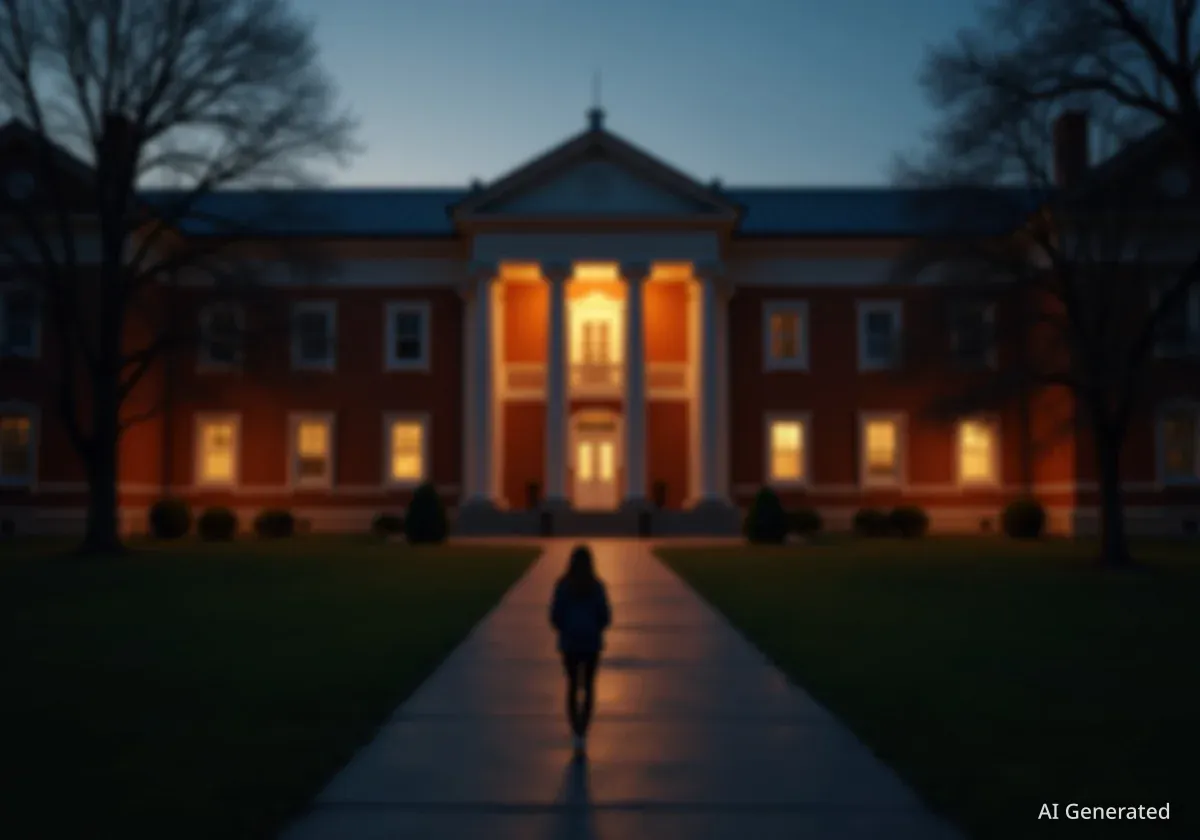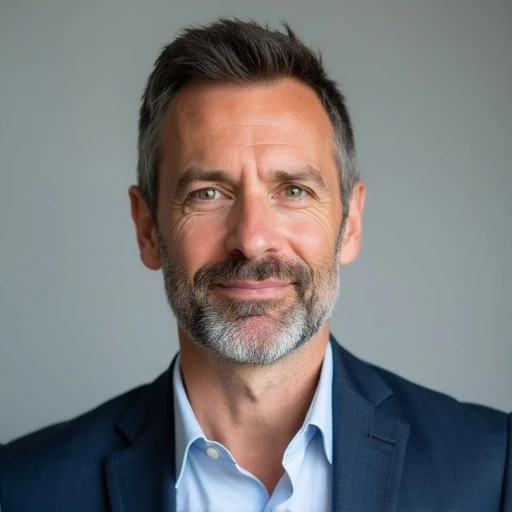A tenured art professor at the University of South Dakota has filed a federal lawsuit against the university and the state Board of Regents, arguing that his impending termination over social media comments violates his constitutional right to free speech. The professor, Michael Hook, was placed on administrative leave after posting controversial remarks about the killing of a prominent political commentator.
Key Takeaways
- Professor Michael Hook is suing the University of South Dakota to prevent his termination over social media posts.
- The lawsuit claims the university's actions violate his First Amendment rights and that the posts were protected political speech.
- The university initiated termination proceedings based on policies concerning misconduct and fitness for duty.
- The case highlights a growing national trend of educators facing disciplinary action for their online speech.
Professor's Lawsuit Challenges University Action
On Tuesday, Michael Hook, a tenured art professor, and his attorney, Jim Leach, filed a lawsuit in federal court in South Dakota. The legal action seeks to halt the University of South Dakota (USD) from firing him for comments made on his personal social media account.
The lawsuit alleges that placing Hook on administrative leave and moving to terminate his employment is a direct infringement on his free speech rights. According to the filing, the university's regulations on speech are described as “vague, overbroad and unconstitutional.”
The legal team is asking the court for orders to prevent any retaliation against Hook, immediately end his administrative leave, and cancel a scheduled personal conference on September 29 where his termination was to be discussed.
“The debate about Mr. Kirk’s beliefs is for the marketplace of ideas,” the lawsuit states. “The First Amendment guarantees the marketplace stays open. The government may not punish people for their ideas.”
The Social Media Posts in Question
The controversy began on September 10, following the fatal shooting of conservative political commentator Charlie Kirk during a public event in Utah. Hook made a post on his personal social media account that included profanity and a derogatory term to describe Kirk.
In his post, Hook also questioned what he perceived as a disparity in public concern and media coverage between Kirk’s death and other violent events, such as the killing of a Minnesota legislator and various school shootings. Approximately three hours later, he deleted the original post and published an apology “to those who were offended.”
Political Reaction and Public Scrutiny
The social media posts quickly drew the attention of state political figures. Republican officials, including Gov. Larry Rhoden and House Speaker Jon Hansen, publicly criticized Hook's comments and expressed support for his termination from the university.
University's Justification for Termination
Following the online circulation of Hook's comments, the South Dakota Board of Regents initiated proceedings to terminate his employment. On September 12, the University of South Dakota formally notified Hook of his impending dismissal.
The university cited its termination policy, which allows for dismissal based on “neglect of duty, misconduct, incompetence, abuse of power or other actions that manifest an unfitness to discharge the trust reposed in public university faculty members or to perform assigned duties.”
Shuree Mortenson, a spokeswoman for the Board of Regents, stated that the organization does not comment on pending litigation. Hook remains on administrative leave pending a final decision on his employment status.
A National Pattern of Disciplinary Action
This case is not an isolated incident. Across the country, educators have faced similar consequences for their online opinions regarding the same event. Lawsuits have been filed by an Iowa teacher, a teacher's aide in South Carolina, and an employee at Ball State University over terminations related to social media posts. Last year, a Sioux Falls School District staff member was fired after making a social media post about an assassination attempt on President Donald Trump.
Navigating Free Speech and Professional Conduct
The case brings to light the complex relationship between personal speech and professional obligations for public university employees. Hook's lawsuit argues that his social media activity constitutes protected political speech under the U.S. Constitution and has no bearing on his professional duties at the university.
The lawsuit contends that the university's actions could create a “chilling effect” on free speech for professors, students, and citizens throughout South Dakota, discouraging them from expressing their views on public matters for fear of professional reprisal.
The University's Employee Code of Conduct
The employee code of conduct for the South Dakota public university system addresses this issue directly. It contains provisions that both protect and regulate faculty speech.
- The policy states that when faculty “speak or write as private citizens on matters of public concern,” they are “free of institutional censorship or discipline.”
- However, it also notes that their “special position in the community imposes special obligations.”
- The code advises educators to be accurate, show respect for others' opinions, and clarify when they are not speaking on behalf of their institution.
The outcome of Hook's lawsuit will likely depend on how the court interprets these competing principles of free expression and professional responsibility within the context of public employment. The case will be closely watched by educators and civil liberties advocates nationwide.





